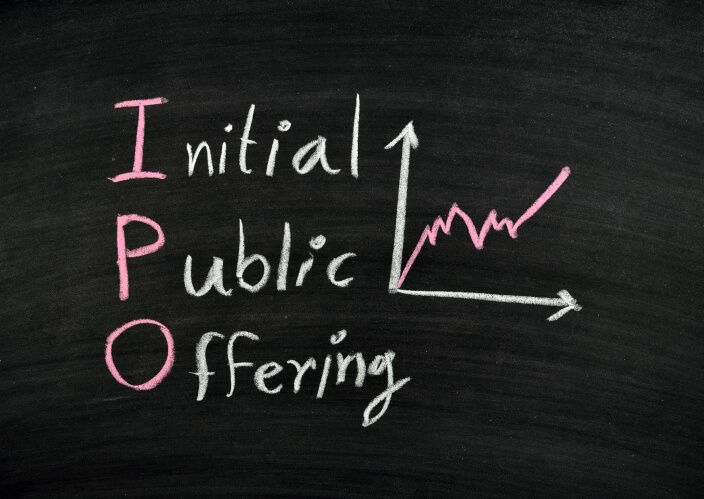
What Is an IPO?
An IPO stands for Initial Public Offering, and is the first time that a company issues stock to the public. This offering can be one of equity (share) or debt (bonds), but either way, it’s still known as an IPO.
Private vs. Public
Companies break down into two categories: private or public. When a company is private, it means that there are usually a small number of shareholders, and that they don’t have to disclose as much information about the company. Most companies will start as private companies, and some will even stay that way. Many large companies, such as Domino’s Pizza and IKEA, are private companies.
If you’re interested in investing in a private company, then you’ve got a lot of work ahead of you. The owners are under no obligation to sell you their company, and any ownership transfers are done on a very personal and complicated basis.
With a public company, it’s very easy for ownership to change hands. Shares of public companies are available for being bought or sold through a stock exchange. Owners of those shares are free to sell them as they please without consulting any other owners.
Going Public
The IPO is where a company transitions from a privately held company to a public company. Shares or bonds will be issued by the company and made available for sale on a stock exchange, such as the New York Stock Exchange or NASDAQ. These shares or bonds are available to be purchased by anyone as long as they have the cash for them.
As part of going public, companies also have to a do as certain amount of reorganization. Public companies are required to have a board of directors, and must report financial information every quarter. Leadership of the company is transferred from the existing owners to the board of directors, who will appoint CEOs and other executives. As a public company, they’re overseen by the SEC in the US and similar agencies in other countries.
Going public doesn’t have to be a complete transition. Many companies will only go partially public, with the rest of the ownership still controlled by the original owners and not eligible for being traded on the stock exchange. They’re still referred to as public companies, and follow the regulations of public companies, but have that reserved section of ownership.
Why Go Public?
Giving over control of a company might not seem very attractive, but there are some big perks that come with it. The biggest is the enormous influx of capital that an IPO provides. For many companies, an IPO will raise millions or even billions of dollars. As long as there’s still a market demand for stock, the company can make more money by issuing more stock.
Going public comes with increased scrutiny, but the extra scrutiny means that the company is financially a safer bet. This allows the company to get better rates when they issue debt. And, since they now have liquidity in their stock, they can begin offering programs like employee stock ownership plans to help attract better talent.